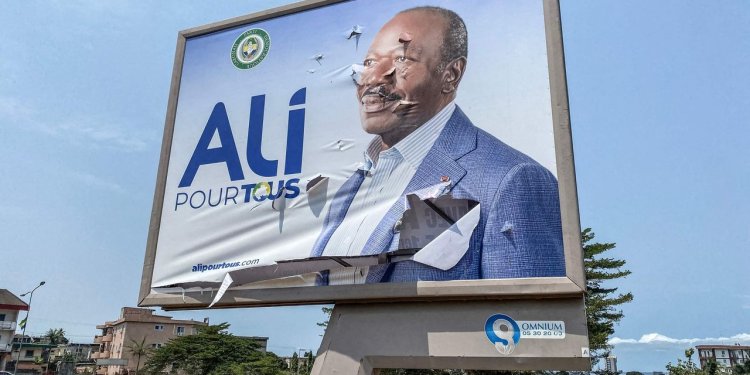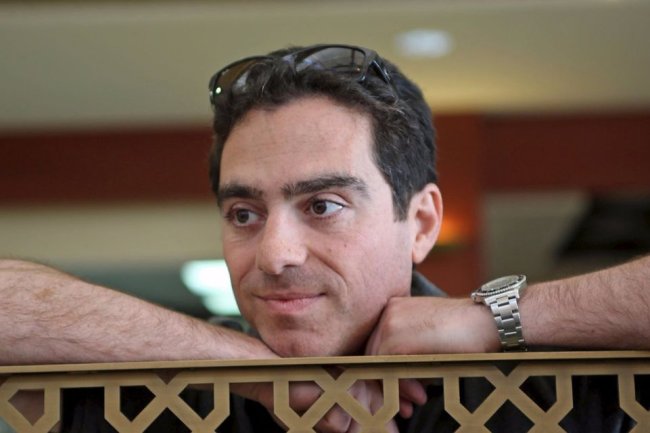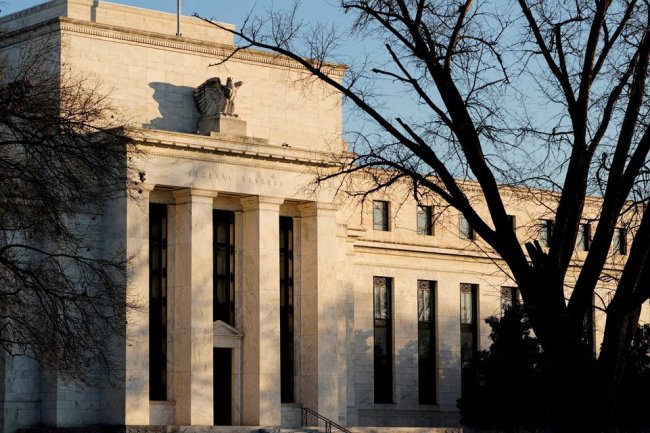Why African Crowds Celebrate Coups
Russian propaganda is part of it, but much of the continent has democracy in name only. By Ebenezer Obadare Sept. 4, 2023 4:44 pm ET A torn campaign billboard of Ali Bongo Ondimba in Libreville, Gabon, Aug. 31. Photo: -/Agence France-Presse/Getty Images Following an Aug. 30 coup perpetrated by his own presidential guards, Ali Bongo Ondimba made a direct appeal for help. In a 51-second video, the 64-year-old introduced himself as “president of Gabon” and called on “friends all over the world” to “make noise” on behalf of his deposed regime. Having won nearly 65% of the vote in a presidential election on Aug. 26, Mr. Bongo could be forgiven for expecting that his countrymen would rise up to resist a blatant attempt to veto the popular will. Yet the mood in Libreville, where hundreds took to the streets to celebrate his


A torn campaign billboard of Ali Bongo Ondimba in Libreville, Gabon, Aug. 31.
Photo: -/Agence France-Presse/Getty Images
Following an Aug. 30 coup perpetrated by his own presidential guards, Ali Bongo Ondimba made a direct appeal for help. In a 51-second video, the 64-year-old introduced himself as “president of Gabon” and called on “friends all over the world” to “make noise” on behalf of his deposed regime. Having won nearly 65% of the vote in a presidential election on Aug. 26, Mr. Bongo could be forgiven for expecting that his countrymen would rise up to resist a blatant attempt to veto the popular will. Yet the mood in Libreville, where hundreds took to the streets to celebrate his overthrow, couldn’t have been more different. The gusto with which the crowd welcomed the putschists suggests Mr. Bongo may have overestimated his domestic popularity.
The demise of elected leaders has been greeted with rejoicing over much of Africa, along with an embrace of the Russian flag. In the wake of coups in Cote d’Ivoire, Mali, Guinea, Burkina Faso and Niger, throngs of people have openly supported soldiers who promise to be everything that the democratically elected leaders weren’t.
The consensus that this counterintuitive celebration of military rule and repudiation of democracy owes in part to Russian disinformation is warranted. The Kremlin has blanketed much of Africa with anti-Western and antidemocratic spin, achieving what foreign policy analyst Dan Whitman describes as “one of the quickest propaganda victories in history.” The technical effectiveness of this campaign is one reason for its success. Such propaganda was always going to be an easy sell in an atmosphere laden with anti-Western resentment.
Yet it’s misguided to pin obvious popular disenchantment with democracy only on Russian disinformation. If the surge of antidemocratic sentiment in Africa points to anything, it is the persistence of political conduct that places an asterisk next to popular participation and representative democracy.
Gabon is a case in point. In principle Mr. Bongo was a democratically elected leader deposed by power-hungry soldiers. In reality he has been ruling since 2009 when he took over from his father, Omar Bongo. The Bongo family has ruled the country since 1967, and Mr. Bongo is a democrat in name only.
Responding to an audience question at Oxford University in 2018, Mr. Bongo, who governed Gabon more or less like a personal fiefdom, provided a rambling and self-serving justification for having no term limits on the presidency. He was accused by the opposition of “shamefully manipulating” the most recent election and the previous two. Given his record, it comes as no surprise that Gabonese are reluctant to defend him—or a democracy that has made nary a difference in their lives.
The African continent is riddled with rulers who revel in governing like monarchs, treating their people with barely disguised contempt when not throwing opposition leaders in jail or hounding them into exile. Once in power, erstwhile opposition leaders hardly behave better, frequently outdoing their predecessors in combining venality with indifference to human suffering. For the general public, once you discount that soldiers are armed, there is no real moral difference between them and the politicians.
The binary of monstrous rulers pitted against hapless masses can be persuasive as an explanation of Africa’s cyclical fiasco. But the reality is that African leaders and the people they rule are often trapped in the same social labyrinth, the upshot of which is to provide cultural sanction for egregious behavior. Meantime, Africa continues to be home to some of the world’s oldest and longest-tenured heads of state, many of whom are grooming their sons to succeed them.
Military rule should always be acknowledged as beyond the pale. But it’s also important not to brush aside the reality that for most Africans, democracy has been nothing more than a grand ruse in which power is hoarded by a dynasty or narrow band of egotistical elites. As long as this remains the case, millions of Africans will continue to find military rule attractive.
Mr. Obadare is a fellow for Africa studies at the Council on Foreign Relations.
Journal Editorial Report: Paul Gigot interviews General Jack Keane. Images: AP Composite: Mark Kelly The Wall Street Journal Interactive Edition
What's Your Reaction?






















